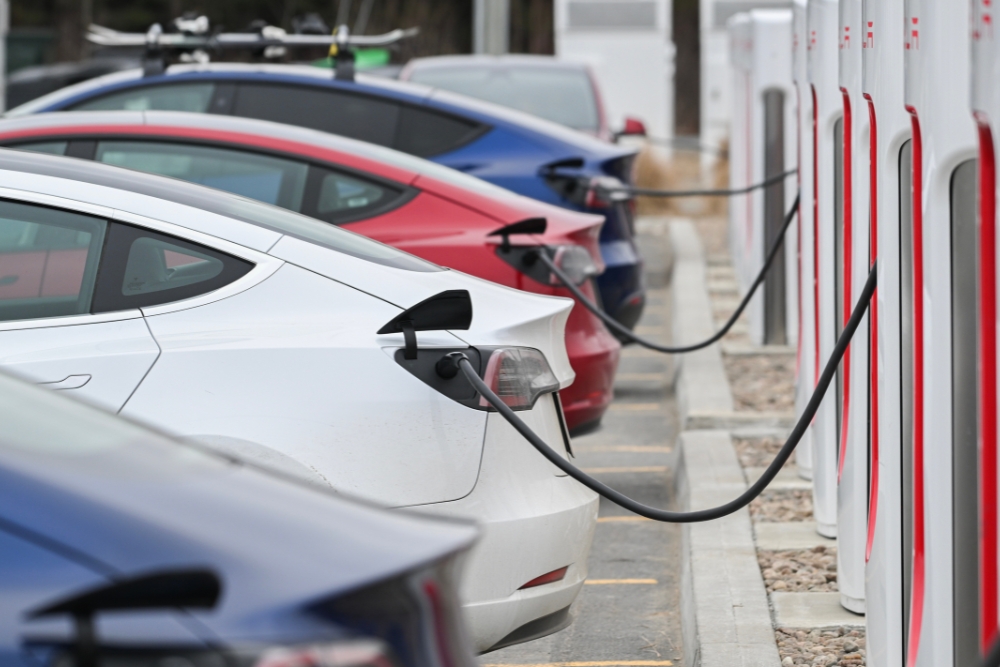ECOS changes 2026: what you need to know
By SG Fleet | 17 November 2025

Edit 10/12/2025:
The Government has now delayed the ECOS tax changes again, pushing the operative date back to 6 April 2030. This gives employers and employees extra time to adjust, with transitional arrangements running until 2032 for unvaried agreements. The underlying tax treatment, however, remains unchanged.
At a glance:
- Government changes coming into force on 6th October 2026 will bring many Employee Car Ownership Scheme (ECOS) arrangements into scope for company-car Benefit-in-Kind (BIK) Tax.
- Around 76,000 employees and 1,900 businesses are expected to be affected, with an estimated £275m annual tax impact, figures show.
- ECOS models with employer ownership, or buy-back clauses, will no longer avoid BIK.
- Businesses are already exploring future-proof alternatives like our own Novalease solution.
Breaking down the ECOS changes
If your business currently runs an ECOS, the next 18 months are going to be vital. The Government confirmed in early 2025 that the long-standing tax advantages attached to ECOS will end on 6th October 2026, which will subject many schemes to the same BIK rules that apply to company cars. It centres around amendments to ITEPA 2003, sections 114 and 116, and will add a new 116A section.
Why is the Government making ECOS changes?
Certain ECOS arrangements were operating in a way that, in practice, resembled a company-car scheme but without the associated BIK tax. The new legislation closes that gap by expanding the definition of employer-provided cars where specific conditions apply. These include cases where the employer remains the registered keeper, imposes restrictions on private mileage, or retains a buy-back arrangement at the end of the agreement.
What the ECOS changes mean for employers
The impact varies depending on how your current ECOS is structured, but most models fall into one of two categories.
The first category includes schemes with employer control over the vehicle’s life cycle, like stipulating limited personal use or retaining a guaranteed buy-back. From 2026, these schemes will likely be viewed as employer-provided cars and taxed accordingly.
The second category includes ECOS models designed to shift ownership and risk fully onto the employee. However, even in these scenarios, the involvement of the employer in underwriting, supplying, or controlling the vehicle could still result in the scheme being captured by the new legislation.

Cost implications of the ECOS changes
Once the changes take effect, the cost implications might be significant. Employers could face higher National Insurance contributions, while employees may see their tax bills rise too. The administrative workload is also likely to increase, as employers managing ECOS will need to handle ongoing compliance checks, payroll adjustments, reporting requirements, and potential changes in scheme-level exposure.
Companies are looking for ECOS alternatives
Businesses across sectors are clear that they need a plan B, and they need it before the ECOS changes come into effect.
Many firms are already beginning their transition to other models, particularly UK salary sacrifice car schemes and personal lease agreements. These alternative models don’t rely on the tax position that’s now being removed from ECOS, which makes them far more reliable and stable in the long term.
As a general industry trend, employers are also looking for solutions that keep risk low, reduce the admin burden, and ensure employees can still access modern, reliable vehicles (particularly electric and low-emission options.

What employers should do now
Although legislation doesn’t take effect until October 2026, we recommend reviewing existing ECOS arrangements as soon as possible. The Government guidance makes clear that transitional arrangements will not maintain tax efficiency for schemes that fall within the new rules, so getting ahead of the game is vital.
What this means is that now is the right time to audit current structures, assess potential tax and cost exposure, and start discussing new ECOS alternatives. With many organisations already in transition planning, acting early helps you to avoid last-minute disruption and ensures staff communication can be managed smoothly.
Looking for an ECOS alternative ahead of the 2026 changes?
If you want a straightforward, low-risk, and fully compliant ECOS alternative, our Novalease UK salary sacrifice car scheme is the perfect choice. It’s completely unique to the UK market; you won’t find another provider offering anything quite like it, and it’s already helping businesses prepare for the 2026 ECOS changes with real confidence.
Novalease removes employer risk, cuts admin to the lowest level in the market, and gives employees access to modern, reliable vehicles on a fixed monthly cost. Unlike traditional salary-sacrifice car schemes in the UK, Novalease is built on a personal contract hire with novation, which puts contract ownership with the employee, rather than the employer. This helps remove layers of employer exposure that ECOS and many salary-sacrifice models carry.
To find out more about how Novalease can help you prepare for the ECOS changes, get in touch with our team. To learn more about our UK salary sacrifice car schemes, visit our employee car benefits page today.
FAQs
Do the ECOS changes apply to cars already in use?
Yes. Any ECOS running after October 2026 may be affected.
Is there a transition period?
There’s no long-term transition, so employers need to prepare in advance.
When should businesses review their ECOS setup?
It’s best to review during the early part of 2026 to avoid last-minute disruption.


.png)


.png)
.png)
.png)